Culture in Poland
Experience Poland's culture
Beautiful landscapes, a diverse culture and rich history. Poland is a fascinating country and has a lot to offer. From medieval literature to the modern art scene, Polish culture is characterised by a unique blend of influences from different regions in Europe.
Polish cuisine
Polish cuisine is rich, varied and hearty, reflecting the country's history, traditions and regional differences. With its emphasis on simplicity and the use of fresh ingredients, Polish meals offer a wealth of dishes and delicacies waiting to be discovered.
5 typical dishes from Poland
These dishes reflect the diversity of Polish cuisine.
1. Pierogi
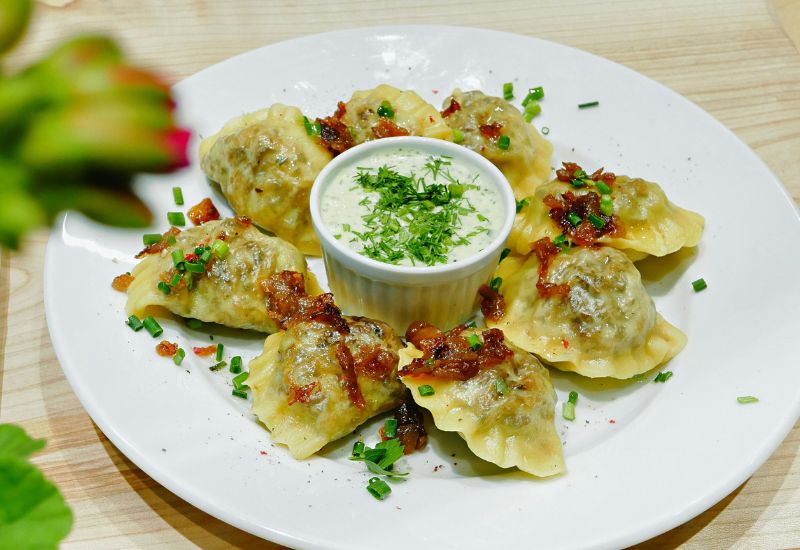
These filled dumplings are probably one of the most famous dishes in Poland. The dumplings are made from a simple dough, rolled out thinly and cut into circles. The fillings for pierogi can be varied and range from savoury to sweet. They are then served either boiled or fried with sour cream or onions.
2. Bigos
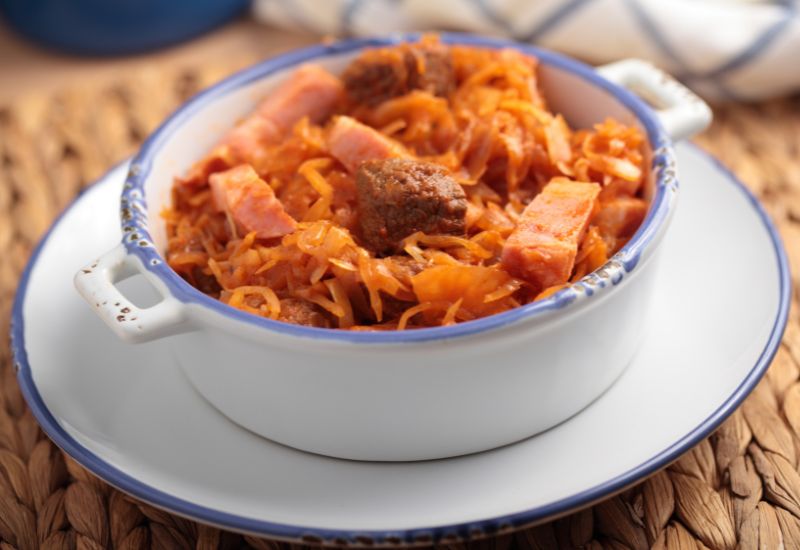
Bigos is also known as "hunter's goulash" or "Polish stew". It is a hearty stew made from sauerkraut, spices and various types of meat. The special thing about this stew is that it is often cooked for several days, giving it a more intense flavour.
3. Zurek
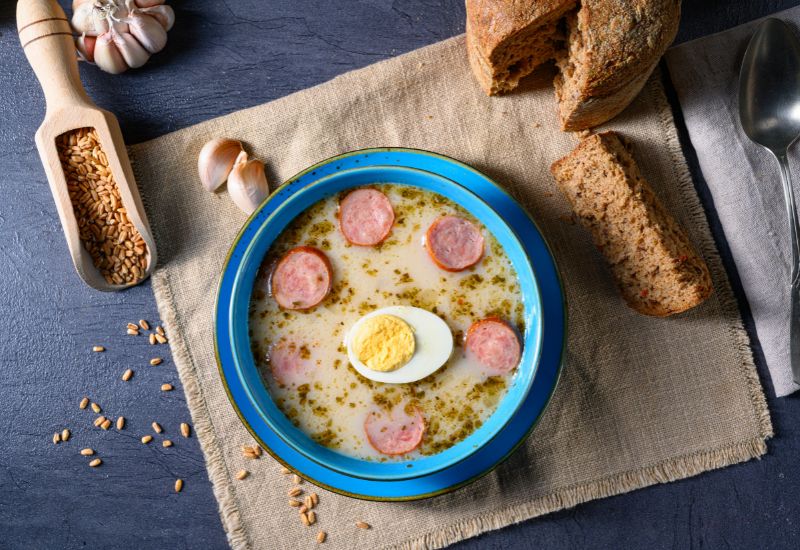
This sour flour soup is often eaten at Easter but is also popular all year round. It consists mainly of sourdough, which explains the sour flavour of the stew. The soup typically also contains eggs, sausage and potatoes as ingredients. The soup is often served with chopped fresh herbs and sour cream.
4. Kielbasa
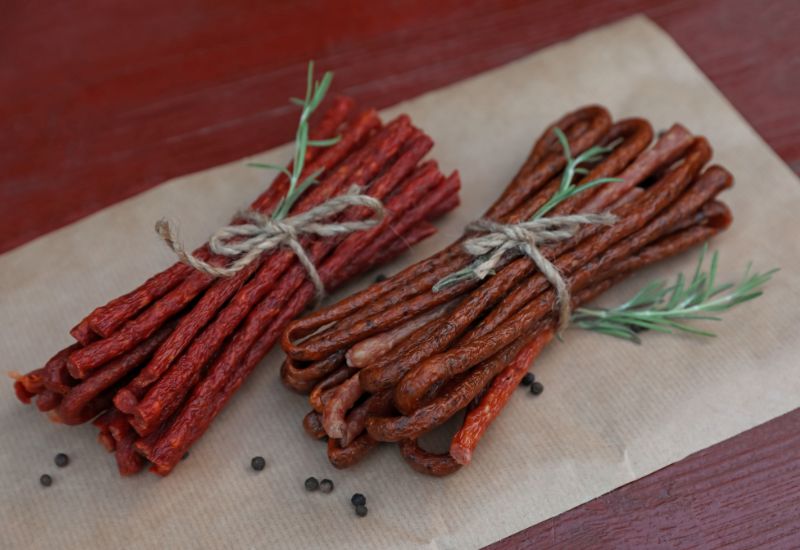
Kielbasa is the generic term for Polish sausage, which is known for its savoury taste. There are many well-known varieties that fall under this term. These include, for example, kielbasa, kabanosy and kielbasa Śląska. The sausage can be boiled, fried or smoked and is used in many Polish dishes.
5. Łazanki
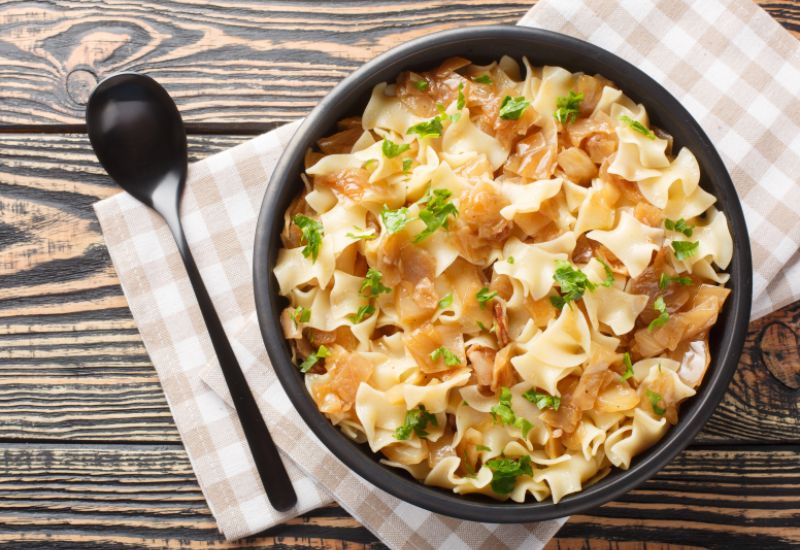
Łazanki is a traditional Polish pasta dish made from wide ribbon noodles, sauerkraut, bacon and onions. The name "Łazanki" is derived from the Polish word "łazanki", which means "those left out to dry" and refers to the method of preparation. Łazanki is a particularly simple and popular dish that is often cooked at home.
Drinks
Vodka
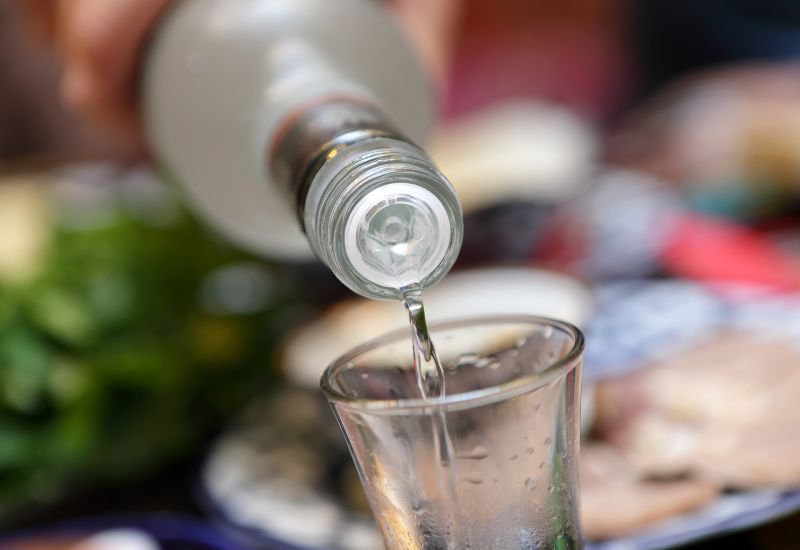
Vodka is a very popular alcoholic drink in Poland and is often regarded as the national drink. Poland is known for producing high-quality vodka and there is therefore a wide range of brands and varieties to choose from.
Coffee

Coffee is very popular in Poland, which leads to a lively coffee culture in the country. Poles enjoy a wide variety of coffees, from strong black coffee (czarna kawa) to milk coffee (kawa z mlekiem) or cappuccino.
Kompot
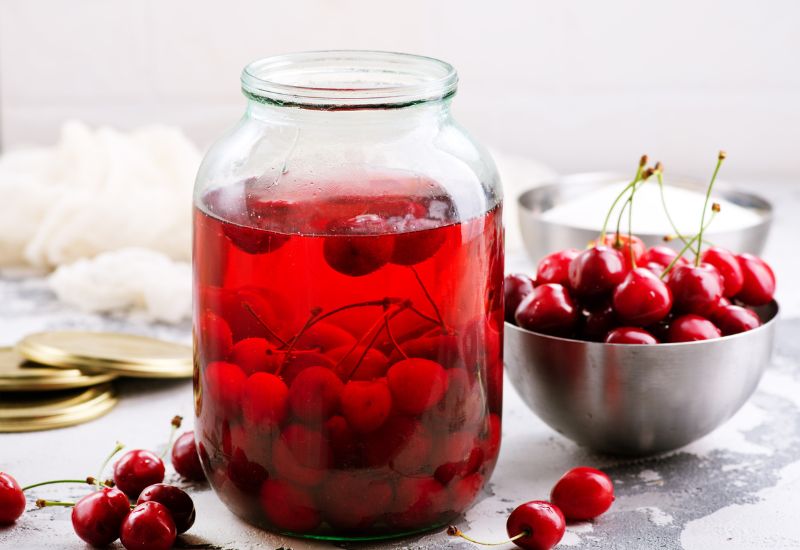
Kompot, a traditional Polish drink, is made from a variety of cooked fruits, which are then cooled and sweetened. This refreshing drink is often served on warm days or on festive occasions.
Traditions and customs in Poland
Traditions are firmly anchored in Polish culture and reflect the importance of family and religion.
Christmas (Wiglia)
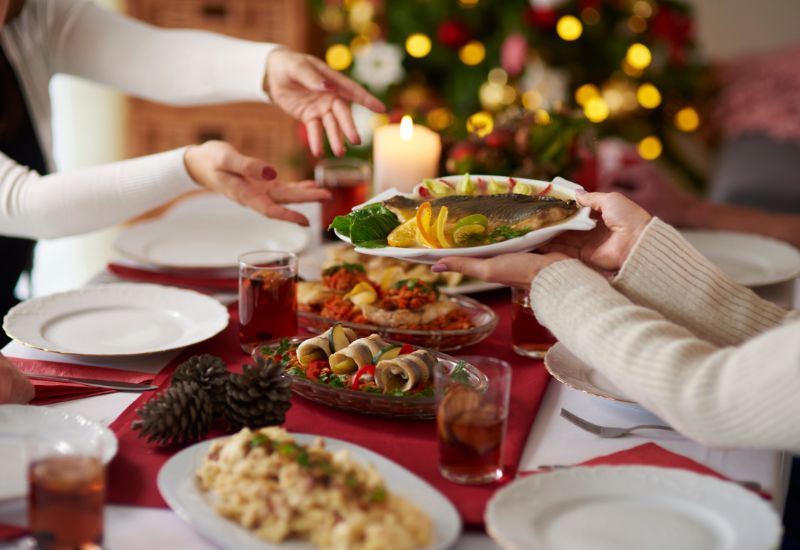
Christmas is one of the most important festivals in Poland and is celebrated on 24 December. A special moment at Christmas is the "Wiglia" Christmas dinner, when the family comes together to share a festive meal. Before the meal, a candle is lit and the Christmas cake "Oplatek" is shared while the family members wish each other peace and blessings.
Easter (Wielkanoc)
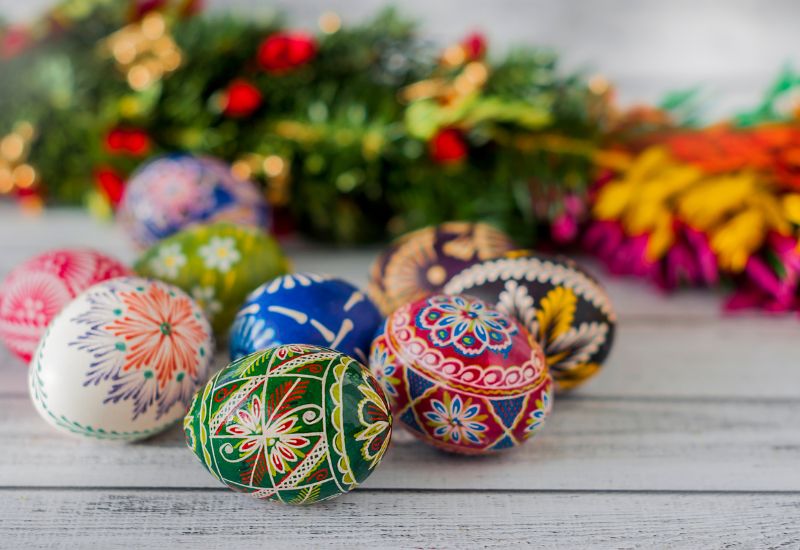
Alongside Christmas, Easter is an important religious festival in Poland, which is associated with numerous traditions and customs. These include the blessing of food, the decorating of Easter eggs (pisanki) and the sharing of traditional dishes.
Andrzejki

On the eve of the feast of St Andrew on 29 November, Poles celebrate Andrzejki. This is a night of fortune-telling and fortune-telling, when young people look for clues to their future love and happiness.
Weddings (Wesele)
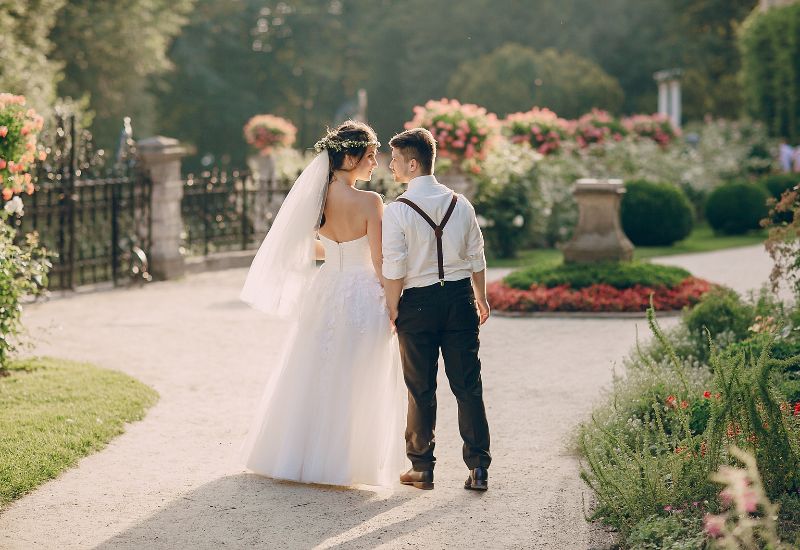
Weddings in Poland are festive and lavish celebrations that often last several days and include wedding customs such as the breaking of bread, the wearing of wreaths and the throwing of rice.
Conclusion
Are you ready to get to know Poland's vibrant and diverse culture and gain an insight into the fascinating interweaving of rich history and lively community?
Here you can find out more about the toll regulations in Poland so that nothing stands in the way of your holiday.






